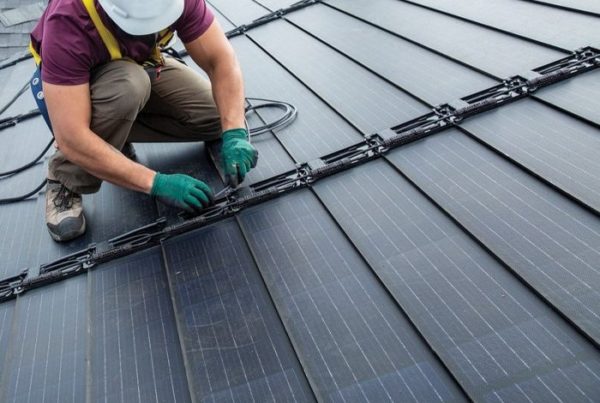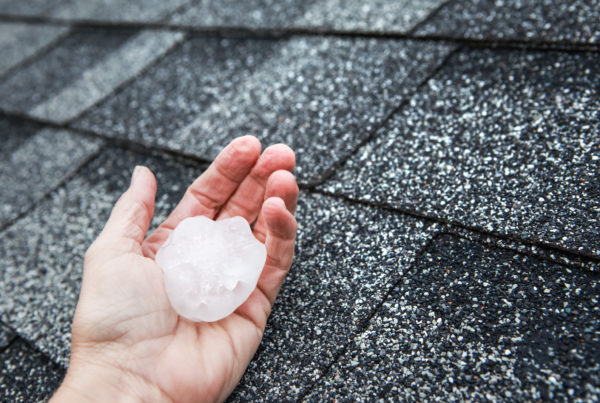Forward-thinking roofing companies are starting to develop additional uses. RESTOR believes there are at least 5 legitimate reasons drones fit our business well:
1. Highly Accurate Estimates for Customers
An age-old challenge for roofers is providing a completely accurate estimate for their clients. Some modern roofs feature areas that are nearly inaccessible. Trees can virtually prevent a roofer from getting to every nook and cranny for inspection and measuring purposes. Other roofs have extreme pitches, creating more risk for the roofer to climb up the ladder and inspect the damage.
With a drone, these problems can go away quickly. Drones can provide accurate visuals with a high-resolution camera to record videos and pictures of the roof, especially in the hard-to-reach areas. Roofers can estimate more accurately because of the drone’s ability to gather general and specific information on that particular roof’s damage.
2. Less Liability
Let’s face it, humans have accidents. Roofers are no different. And although many of us are experts in climbing ladders and traversing various roof lines, mistakes can be made. And these mistakes can be painful both from a physical and financial standpoint. If we can eliminate those mistakes and accidents, it’s better for everyone involved.
Drones can prevent these injuries from happening to roofers. Drones record the roof from a bird’s eye view, keeping everyone on the ground during the initial quoting process. Not only will this prevent accidents, drones can typically get the job done much more quickly than setting up a ladder and climbing onto the roof.
Featured Image:
CHRISTOPHER BROWN, CO-OWNER OF NEXT NEW HOMES GROUP, USES HIS MULTI-ROTOR HELICOPTER DRONE TO TAKE AERIAL VIDEO OF A HOME IN SACRAMENTO, CALIF., ON FEBRUARY 25, 2014. DRONES ARE INCREASINGLY BEING USED BY SMALL COMPANIES TO SHOOT VIDEOS FOR REAL ESTATE, CAR COMMERCIALS, WEDDINGS, SPORTS EVENTS, AND OTHER INSTANCES WHERE AERIAL SHOTS ARE NEEDED. (RANDY PENCH/SACRAMENTO BEE/MCT)
From Wikipedia, the free encyclopedia
An unmanned aerial vehicle (UAV), commonly known as a drone, as an unmanned aircraft system (UAS), or by several other names, is an aircraft without a human pilot aboard. The flight of UAVs may operate with various degrees of autonomy: either under remote control by a human operator, or fully or intermittently autonomously, by onboard computers.[1]
Compared to manned aircraft, UAVs are often preferred for missions that are too “dull, dirty or dangerous”[2] for humans. They originated mostly in military applications, although their use is expanding in commercial, scientific, recreational and other applications,[3] such as policing and surveillance, aerial photography, agriculture and drone racing. Civilian drones now vastly outnumber military drones, with estimates of over a million sold by 2015.
3. Immediate Return on Investment
Most drones are inexpensive for businesses, currently costing $1,000 or less. Drones also take less time to gather data from multiple buildings. One company in Nebraska was able to record videos for 11 apartment buildings in one hour, all from their drone. Before the company bought the drone, it would have taken six hours to assess those same apartment buildings.
Some roofers might dread the lengthy training time to learn how to reliably fly a drone over a client’s home, but there is software on the market that takes much of the time (and stress) out of the equation. Many drone pilots state they were extremely comfortable flying their drones after roughly 35 hours of practice.
4. Developing Guidelines
Even though drones are great for businesses in general, the government has been behind on passing regulations concerning drones and other UAV’s. As of now, there are 17 states that regulate drone flights, and there are other states considering the same legislation. The Federal Aviation Administration (FAA) cannot track and monitor these devices, and they also don’t have enough manpower to regulate the restrictions.
The FAA has provided a few exceptions for businesses. State Farm has been granted one of these exeptions, using drones to assess roof damage for insurance purposes. With clearer guidelines, expect drones to be used not just in the roofing industry, but in other industries as well.
5. Fun Factor
Businesses of all types are either buying drones or looking into the feasibility of employing them in their business. And really, why wouldn’t they? Drones are fun!
Today’s technology makes it easier for roofers to provide accurate estimates to their clients. Drones create less liability for roofers, have a great return on investment, and are fun to fly. Once clearer regulations are passed, drones will be on the rise for businesses across the country.




